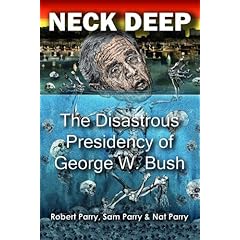Liam Madden from Iraq Veterans Against the War sends the following:
In 1969, the My Lai massacre helped fuel popular opposition to the Vietnam War. U.S. political and military leaders insisted that such crimes were isolated exceptions. Members of Vietnam Veterans Against the War knew differently.
In January of 1971, over one hundred Vietnam Veterans gathered in Detroit to testify their experiences to America. Their testimony, called the Winter Soldier Investigation, revealed that atrocities were systemic and responsibility laid at the highest levels of government.
The U.S. Government lied to get us into war and continues to conceal the true nature of military occupation.
On the weekend of 13-15 March, 2008, Iraq Veterans Against the War will assemble history’s largest gathering of US veterans of Iraq and Afghanistan, as well as Iraqi and Afghan survivors. They will provide first hand accounts of their experiences and reveal the truth of occupation.
Click here to sign the statement of support.




